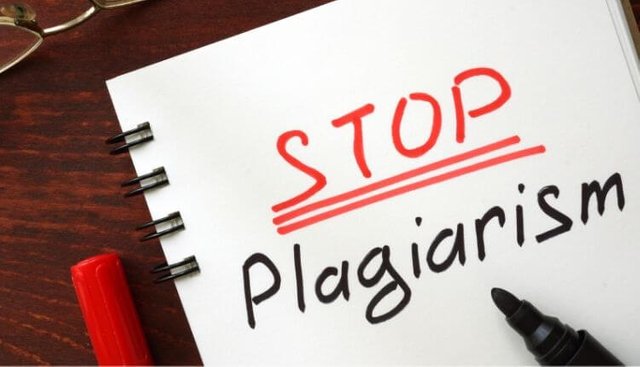What is plagiarism
Many humans think about plagiarism as copying any other's paintings or borrowing someone else's original thoughts. However, phrases like "copying" and "borrowing" can obscure the gravity of the crime:
Types of plagiarism
Direct Plagiarism
When a creative duplicates the text of another writer word for word, without using quote marks or attribution, and passes it off as his or her own, this is known as direct or verbatim plagiarism. In that way, it is like entire plagiarism, but it refers to sections (in place of all) of a few other paper. This form of plagiarism is considered cheating and it calls for instructional disciplinary movements. It isn't as commonplace, but it's far a serious infraction of instructional rules and ethics.
Self-Plagiarism
vehicle-plagiarism, also called self-plagiarism or duplication, occurs whilst an author reuses massive quantities of his or her formerly published paintings without attribution. consequently, this sort of plagiarism is maximum possibly to involve posted researchers, in place of university students. The severity of this form of infraction is under debate, depending on the copied content material. Many academic journals, however, have strict criteria on the percentage of author’s paintings this is reusable. Many journals run manuscripts thru a plagiarism-detection software program earlier than thinking about them for assessment.
Paraphrasing plagiarism
that is, as published on Wiley, the maximum commonplace type of plagiarism. It entails using a person else’s writing with some minor adjustments inside the sentences and using it as one’s personal. although the words range, the unique idea remains the equal and plagiarism occurs. because students frequently do now not have a clear understanding of what constitutes plagiarism, there are guidelines for studies and writing to be had to lessen the threat of paraphrasing plagiarism.
Mosaic Plagiarism
Mosaic plagiarism is specially tough to come across because it uses a person else's words or content material in its personal research. It's also known as patchwork plagiarism, and it's a purposeful and unethical form of plagiarism.
Add a citation
“The big lesson in life, baby, is never be scared of anyone or anything.”
source
Why is plagiarism wrong?
Plagiarism is unethical for 3 reasons: firstly, it's far unethical due to the fact it's far a shape of robbery. by way of taking the ideas and words of others and pretending they may be your very own, you are stealing a person else's highbrow belongings. Secondly, it is unethical because the plagiariser sooner or later blessings from this theft.
How to avoid plagiarism
At once quote another character's written or spoken words.
Paraphrase some other individual's spoken or written words.
Use theories, thoughts, opinions, research, etc.
Use ancient, statistical, or medical information or data that aren't your own.

hello welcome to steemit. Your Achievement 3 task has been confirmed. You can move on to the next task. Follow @steemitblog for updates.
Rate;2
steemit Turkey Representative
Downvoting a post can decrease pending rewards and make it less visible. Common reasons:
Submit
Hi, @ahmadnawaz10,
Your post has been supported by @svm038 from the Steem Greeter Team.
Downvoting a post can decrease pending rewards and make it less visible. Common reasons:
Submit